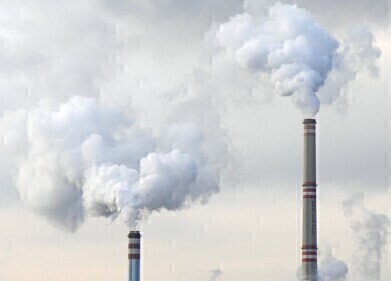Synthetic Fuels
What Are the Disadvantages of Synthetic Fuel?
Nov 29 2022
While some analysts believe synthetic fuel has the potential to step up and address issues like climate change and air pollution, others are skeptical. Synthetic fuels aren’t a perfect solution, and we explore some of the pitfalls below:
Efficiency
Some critics maintain synthetic fuels are four times less energy efficient than batteries. So, powering combustion engine cars with synthetic fuel will require four times more electricity than EVs. Even if the electricity used is renewable, some experts are concerned synthetic fuels will place huge demand on the global energy grid.
Undeveloped infrastructure
Despite companies like Porsche investing heavily in synthetic fuel facilities, there’s a huge amount of ground to cover before synthetic fuels become a feasible drop-in replacement for petrol. The manufacturing process is complex, costly and energy intensive, which is a major barrier to uptake. As a result, synthetic fuels will remain expensive until infrastructure is scaled up.
Comparable emissions
Synthetic fuels share the same chemical properties as conventional petrol and diesel. This means they still release toxic gasses into the atmosphere when burned. While some synthetic products generate fewer particulates, gases like carbon dioxide (CO2), sulfur oxide (Sox) and nitrogen (NOx) are still released. This makes synthetic fuels comparable to conventional fuels, in terms of greenhouse gas emissions.
Of course, it’s important to note that most synthetic fuel manufacturers actively capture atmospheric carbon to produce synthetic fuel. This offsets the emissions produced when synthetic fuels are burned.
Lackluster CO2 reductions
In a best case scenario, analysts predict synthetic fuels can slash CO2 emissions in the transport sector by 85% by 2050. In comparison, battery powered EVs could eliminate emissions. For many people, this puts synthetic fuels in second place.
In defense of synthetic fuels
Synthetic fuels may have their disadvantages. But that hasn’t stopped advocates from hailing them as the fuels of the future. In an article published in the journal Frontiers in Energy Research, the authors say synthetic fuels could step up as a “social bridge” in the global energy transition.
They warn that while battery electric vehicles (BEVs) offer zero tailpipe emissions, high manufacturing costs will prevent low-income groups from adopting the technology. This will lead to a “transport underclass” in which only high-income groups own private vehicles.
“The fear is that a radical move toward abolishing internal combustion engines (ICEs) will result in a transport social underclass where lower socioeconomic groups become transport impoverished,” reads the article. The authors also stress that manufacturing and electricity generation emissions associated with BEVs are often transferred to other locations, usually with low socioeconomic status.
They say synthetic fuels will bridge the gap and “provide a route to accelerate a transition” to a net-zero global economy. Find out more about the enormous potential in ‘Synthetic Fuels - What, How & Why’.
Digital Edition
PIN 25.3 June/July
June 2024
Analytical Instrumentation - Recent Advances In Various Bench Scale Accelerated Oxidative Testing Methods For Fuels - Petrochemical Industry: Anton Paar Solutions Streamline Processes, Reduce H...
View all digital editions
Events
Jul 30 2024 Jakarta, Indonesia
Jul 30 2024 Jakarta, Indonesia
China Energy Summit & Exhibition
Jul 31 2024 Beijing, China
Jul 31 2024 Chengdu, China
Aug 05 2024 Moon Township, PA, USA



















